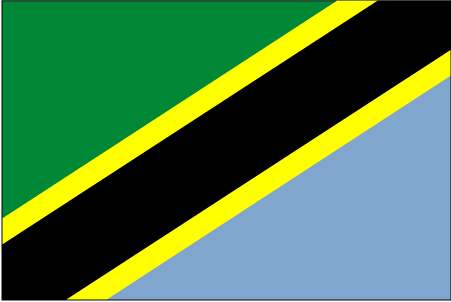Tanzania has entered into top 10 ranked countries on the continent for this year’s Mo Ibrahim Index of African Governance-2012 IIAG, revealing overall positive trends in governance on the continent.
The sixth IIAG pre-results which was released earlier this week, reveals that Tanzania came 2nd out of 11 countries in East Africa, and 10th out of 52 overall.
This is the first time for Tanzania to enter into such position since the establishment of IIAG awards in 2007.
“The 2012 IIAG provides full details of Tanzania’s performance across four categories of governance: Safety & Rule of Law, Participation & Human Rights, Sustainable Economic Opportunity and Human Development,” stated a press statement issued by MO Ibrahim Foundation.
It detailed that Tanzania’s performance in the 2012 IIAG overall governance scored 59 (out of 100) for overall governance, a higher result than 47 and 51 of the regional average for East Africa and the continent average respectively.
Tanzania received 62 highest scores in the Safety & Rule of Law and Participation & Human Rights categories and 54 lowest score in the Sustainable Economic Opportunity category.
At sub-category level, Tanzania’s ranked 6th for Gender and 32nd for Education. Between 2000 and 2011 Tanzania’s overall governance scores have relatively improved.
The competition has also marked unfavorable shifts in some of Africa’s regional powerhouses and a mixed performance across the regions.
While West, Central and Southern Africa are slowly improving their overall governance scores, both North Africa and East Africa have registered declines. East Africa has now been overtaken by West Africa in the category of Sustainable Economic Opportunity.
Two of the anchor countries of East Africa, i.e. Kenya and Uganda, have demonstrated deteriorations in Sustainable Economic Opportunity, dragging down the regional trends.
Since 2006, the strongest continental performances are registered in the categories of Sustainable Economic Opportunity and Human Development, where there have been improvements in all sub-categories.
Meanwhile, the categories of Safety & Rule of Law and Participation & Human Rights have registered declines, mainly due to regressions in three sub-categories: Rule of Law, Personal Safety and Rights.
This imbalance of governance performance between the four main categories of the IIAG was highlighted in the previous two editions of the IIAG, when Egypt, Libya and Tunisia stood out as cases in point. This characteristic, which appears across the continent, remains a concern.
Established in 2007, the IIAG is the most comprehensive collection of quantitative data that provides an annual assessment of governance in every African country, with the exception of the Republic of Sudan and the Republic of South Sudan for which there are insufficient disaggregated data.
Compiled in partnership with experts from a number of African institutions, the IIAG provides a framework for citizens, public authorities and partners to assess the effective delivery of public goods and services.
The IIAG provides a tool for current and future leadership and for all stakeholders to robustly assess policy outcomes. Data used in the compilation of the 2012 IIAG are from 2000 – 2011. The data therefore do not capture any possible progress in post-Arab Spring countries.




